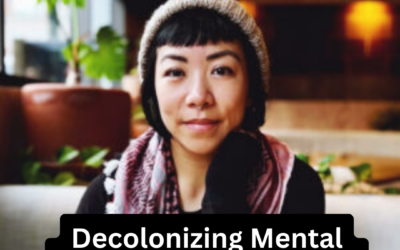Podcast: Play in new window | Download (Duration: 33:19 — 76.4MB)
Subscribe: Apple Podcasts | Spotify | Amazon Music
Oxytocin and dogs!
Our pet relationships provide a trust and bonding boost, and is the natural love drug our bodies make at key relational moments such as child-birth, nursing, orgasm and falling in love.* In this episode we discuss how to create this moral molecule without even needing complicated human relationships by connecting mutually to our companion pets. What’s not to love about that?
The science now is clear – this inter-species relationship is mutually beneficial and potentially life-changing for both of you. Lower cortisol, higher oxytocin, more trust and connection – ba bing!
Most of us can relate to having a beloved pet that has been a significant part of our lives. We love them, and the cool thing is, they love us back unconditionally it seems, without regard to our moral failings. In fact, there is now crazy hard science research to back up the power of this connection, particularly regarding dogs.
In our last episode, we told you that we’d be talking more about the love drug, oxytocin, and how we can actively induce the release of this hormone in our bodies in order to promote our favorite subject, building security. In this one we get real and walk the walk of vulnerability.
So, what do pets, specifically dogs, have to do with oxytocin and building security?
Well, security happens through safe connection, and connection both induces the release of oxytocin and is created by it’s presence. This cascade creates a feeling of physiological safety and openness and warmth in our bodies, which helps us to bond and build security.
Believe it or not, we can consciously manipulate our body’s release of oxytocin through the bond we create with our beloved pets. And if you’ve been following the podcast, you know this ties into the previous 2 episodes on Polyvagal Theory and our autonomic nervous system.
In this episode, join Ann and Sue as they talk about what this experience looks like in real life and how to cultivate the love-drug cross-species. Also hear Sue’s incredibly powerful story of tragic loss, and renewed hope, all related to pets.
*Of course we are simplifying a bit – nothing is all good. Oxytocin isn’t always a love-drug, it can cause aggression or feelings of loneliness. For example if the wolves had made eye-contact as the companion dogs did (the wolves made much less eye contact and had no increase in the hormone), it would probably have spiked aggression rather than bonding (an urge to protect their bonded pack rather than attach to the alien human), but we are focusing here on the most major findings of the neuropeptide.
 Cooper comforting Sue… I know so MANY of you have pets as primaries, it’s a real relationship (scientifically and intuitively) that truly comforts and heals.
Cooper comforting Sue… I know so MANY of you have pets as primaries, it’s a real relationship (scientifically and intuitively) that truly comforts and heals.
Episode 95 show notes:
Oxytocin – Ann and Sue’s favorite neuropeptide, AKA the cuddle drug, the love drug, the moral molecule.
Research shows that the bond we have with our pets is reciprocal. The pleasure center of the brain lights up in us and in our animal partners. Cortisol levels decrease, and oxytocin levels increase in humans and animals when we have high eye contact. The most significant increase (up to almost 300%) is seen with dogs and varies based on breed. It’s an extra boost if we catch our dogs looking at us first.
Don’t be embarrassed about your significant other with 4 legs, or less. Hear about bonding with fish, monkey’s picking and humans grooming behavior, and what lice has to do with it all.
Dogs and any other beloved pet can be serious attachment figure in our lives, helping us to build a sense of safety and security in the world. It can be a very powerful relationship that is just as strong, and sometimes stronger, than human connections. Granted some people have pets as just animals, an object to guard their home or to rescue or to get dates, but that is totally different from the potential real attachment relationships that in the right circumstances can enhance the lives of the whole family.
Sue shares how dogs have been a consistent, benevolent, reliable, caring, protective force in her life. To illustrate this, she shares a vulnerable personal story about her relationships with her dogs, Jackson and Cooper, through some traumatic experiences.
Story take-aways:
Teenage parenting tip: if you want to get your teen to talk to you, do something active with them so you aren’t staring at them waiting to talk. Engaging in something actively where they don’t have to make direct eye contact is more likely to open up a reluctant talker – like walking dogs, or dribbling balls, or parallel doodling – sneaking up on the conversation is conducive to getting them to open up without stress.
Oxytocin is better than crack.
Important note: the bond with Jackson and later, Cooper, didn’t replace the relationship with people during these hard experiences. The connection, however, is unique and sometimes better than the connection with people if you come from experiences where people didn’t earn your trust.
Back to Oxytocin and Cortisol Science
Oxytocin bounces across species and is not species-dependent. Think chimpanzees holding each other , the owl caring for the duck in the owl’s nest, the hippo and the giant turtle.
It is normally associated with childbirth, nursing, love-making orgasm and everybody produces it. It causes the milk let-down response that nursing women experience when a baby cries or in response to someone in distress.
Companion animals – but especially companion dogs – pick up our distress and actively want to nurture us and vice versa.
Lesser known oxytocin response: tribalism-aggressive and protective behaviors
So how do we really facilitate oxytocin flow with people?
Learn to trust by taking small calculated risks
Vulnerability begets nurturing
Use gentle eye contact – soft gaze for extended time (not fight or make out gaze, just looking with interest and curiosity and care)
Sue and Ann discuss research studies, how the breed of dog effects eye contact and bonding, and other examples of the connection between dogs and people.
Dopamine: the hunt and find chemical, think looking for a date
Dopamine + Oxytocin = amazing from a romantic standpoint.
Thanks for joining us as we get vulnerable and walk the walk with you. We get it. That’s why we are working to build security one episode at a time!
Resources:
How Dogs Love Us – A Neuroscientist and his Adopted Dog Decode the Canine Brain – by Gregory Berns
Gazing into the puppy-dog eyes may actually be good for you – NPR audio
A 1980 study found that more heart-attack victims with pets survived beyond the one-year mark than those without, a finding that was reproduced 15 years later.
Dog – Human Chemistry, the Role of Oxytocin
Smiling faces are attractive to dogs, thanks to oxytocin
Oxytocin Gaze Positive Loop and the Co-evolution of Human-Dog Bonds.
The Pet Effect – Health Related Aspects of Companion Animal Ownership
Who doesn’t love special offers?
Gain private access, more in-depth episodes and exclusive content with us through Patreon.
Become a Super Neuronerd, a Gold Neuronerd or an Out and Proud PLATINUM NEURONERD today! 🙂
Join our exclusive community of Therapist Uncensored Neuronerds for just $5 a month!
Help us create a ripple of security by sharing the science of relationships around the globe!
NEURONERDS UNITE! Click here to sign up.
 Cooper looking regal and standing guard emotionally
Cooper looking regal and standing guard emotionally














